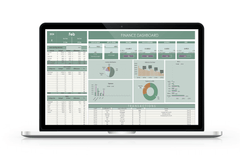Why categories matter
Too many (overwhelm). Too few (no insight). Start simple, then add as needed.

The starter set (15–20 that cover 99% of spend)
Essentials
- Housing (rent/mortgage)
- Council tax
- Utilities (gas/electric/water)
- Internet & mobile
- Groceries
- Transport (fuel, public transport, parking)
- Insurance (home, car, life)
- Childcare/School (if applicable)
- Healthcare (NHS dental/optical/meds not covered)
Financial priorities
- Emergency fund (cash buffer)
- Debt repayments (credit cards/loans)
- Retirement/Investing (ISA/SIPP)
- Short-term savings (upcoming purchases)
Related: Pay your debt off Fast
Everyday living
- Personal care (toiletries, hair)
- Subscriptions (streaming, apps)
- Eating out & coffee
- Entertainment & hobbies
- Clothing & shoes
- Gifts & celebrations
- Pets (food/vet/insurance)
Sinking funds (irregular but certain)
- Car costs (MOT, service, tyres)
- Home maintenance
- Travel/holidays
- Annual fees & renewals (Amazon, software, licences)
- Electronics replacement
-
Rule of thumb: if it surprises you more than once, make it a category or a sinking fund.
Related: The Savings Waterfall (UK): The Simple Order That Actually Works
Simple structure that keeps you sane
- Needs (Essentials)
- Goals (Savings/Debt/Investing)
-
Wants (Everything else)
This maps cleanly to dashboards and makes cut/keep decisions obvious
Free Budget calculator - try it Online
How to avoid category chaos
- Start with the list above. Run it for one month.
- Only add a new category if it repeatedly appears in “Misc”.
- Merge tiny categories (e.g., coffee → Eating out).
- Cap total categories at 20 maximum. Clarity beats precision.
Connect to your routine
- Weekly: import transactions, scan overspends, move money to sinking funds.
-
Monthly: adjust targets (up/down 5–10%), roll forward balances.
Your tracker handles the maths; you make decisions.
Try our 'Complete One-tab expenses tracker'
Example beginner map (clean and visual)
Needs: Housing, Council tax, Utilities, Internet/Mobile, Groceries, Transport, Insurance, Childcare/School, Healthcare
Goals: Emergency fund, Debt, Retirement/Investing, Short-term savings
Wants: Eating out, Entertainment, Clothing, Personal care, Subscriptions, Gifts, Pets
Sinking funds: Car, Home maintenance, Travel, Annual fees, Electronics
NEXT: How to build an Emergency fund in 4 Simple steps
What to do next
- Pick the starter set, turn on sinking funds for the predictable “surprises,” and let your tracker update totals automatically. If you can only tweak one thing today, fund your emergency category first.
- Ready to use this without tinkering? Try the MoneySenseMap Complete Finance Tracker and start with the prebuilt tracker. Just enter your categories and you are good to go.





